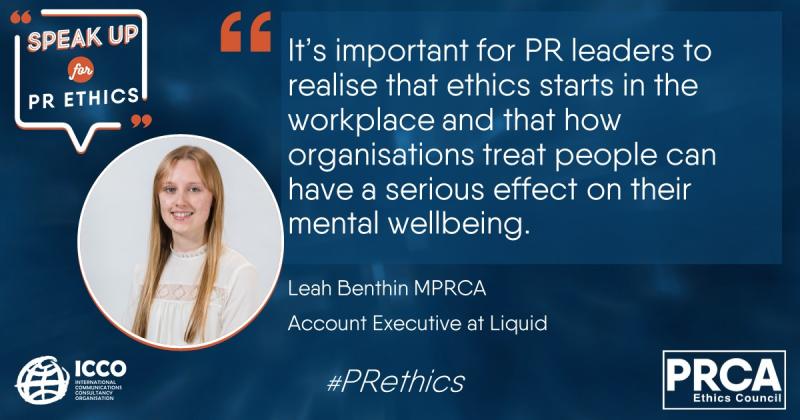
Mental health has never been higher on the agenda than it has been throughout 2020 and 2021. The feeling of isolation that came with the coronavirus lockdown exacerbated mental health issues for many, and feelings of anxiety and confusion surrounding the unprecedented situation we found ourselves in were high.
Working from home also became a problem for many people’s mental health as the nation struggled to find the balance between their work and home life. For those of us working in the PR industry, this was particularly prominent as coronavirus accelerated the pace of work and many found themselves working even longer hours than before. Due to this, improving mental health in the industry is now a key ethical consideration for employers as they build back their company culture and as staff begin to return to the office.
But let’s be honest – the PR industry was experiencing mass burnout even before the coronavirus pandemic. PR professional, Leslie Campisi, recently likened PR to “pulling a rabbit out of a hat every single day” and she’s not wrong. PR is all about selling your ideas and you know that those ideas have to be good, you have to be persuasive, and you need to keep having new, good ideas all the time - we’re certainly under a lot of pressure to succeed.
Not only this, but you also have to be up to date with the news agenda 24/7, making it extremely difficult to reduce screen time, control your consumption of negative media, and generally switch off from work.
According to the PRCA report ‘Opening the Conversation: Mental Wellbeing in Public Relations’ in 2019, 60% of public relations and communications professionals have experienced mental ill-health and 89% have struggled with mental wellbeing. Furthermore, 31% of PR professionals surveyed said that they find their job very stressful, compared to just 19% of UK workers overall. As a response to this data, it’s important for PR leaders to realise that ethics starts in the workplace and that how organisations treat people can have a serious effect on their mental wellbeing.
Post-coronavirus, it has been revealed that 28% of PR leaders cite staff mental health and motivation as their main concern, with many expressing concerns that keeping colleagues motivated and supporting their mental health and happiness is the biggest threat to business throughout 2021.
Industry leaders have a responsibility to address the mental health issue that is apparent in our line of work and, more importantly, understand the role that employers play in the mental health of their staff. Taking action to not only help reduce mental health issues amongst staff, but also prevent them in the first place, is vital.
What can the PR industry do?
At Liquid, we have a number of initiatives in place which aim to boost team morale, keep everyone connected while many of us are still working from home and, ultimately, protect our mental health. These include a number of social groups including a book club, virtual yoga classes every Thursday morning, and even a pet group where staff can share pictures of their furry friends.
Each member of staff is also part of a buddy group which is encouraged to meet once a week, either virtually or in person, for a social catch up over a cup of tea – with no work talk allowed! We also have a dedicated wellbeing working group, whose focus is to actively seek out initiatives that help the team.
For those who find themselves needing extra support, Liquid also has two qualified mental health first aid responders, with two more signed up for the training. Our responders are trained to recognise and identify potential mental health issues, as well as provide confidential support to colleagues who are suffering and give them the tools to help.
As the PR industry begins to recover from the effects of the coronavirus pandemic, it’s clear to see that mental health needs prioritising. Now seems like the perfect time for a total reset of our mindset and working culture – we work in a fantastic industry but it’s about time that this ongoing crisis is resolved.
